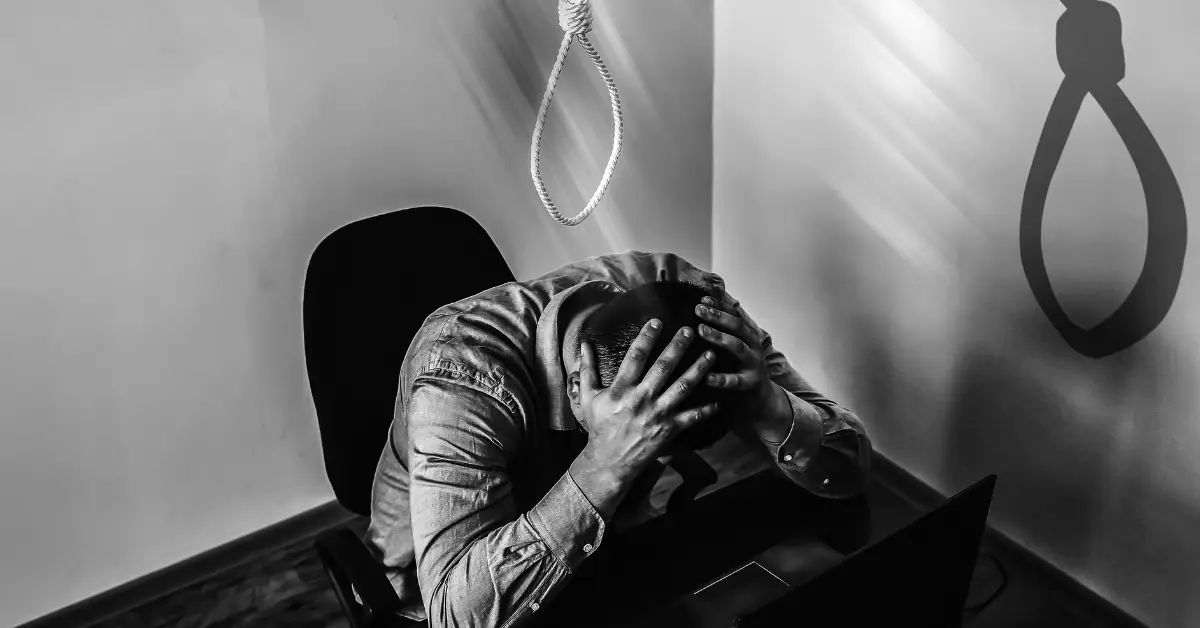AS Zimbabwe joined the global community in commemorating World Suicide Prevention Day on 15 September, the urgency of the moment is impossible to ignore.
Suicide remains one of the most pressing public health challenges of our time, and this year’s theme, Changing the Narrative on Suicide, calls for a radical shift in how we speak, think, and act around mental health and suicide prevention.
Cimas Health Group’s iGo wellness coach, Chidochashe Makara, believes this year’s theme resonates deeply with the country’s current mental health landscape.
“Mental health services in Zimbabwe are under-resourced, and cultural stigma remains strong. Transitioning from silence to open conversation, as the theme encourages, is critical. It aligns with the drive to invest in community-based awareness campaigns,” Coach Makara said.
The statistics are sobering. According to the World Health Organisation’s 2022 report on mental health conditions in Zimbabwe, 1,8% of all deaths in the country are attributed to suicide, with men contributing a higher rate than women.
Adolescents and youth are particularly vulnerable, facing mounting pressures from school, unemployment, and the often-unrelenting influence of social media.
“There is a growing concern about suicide among young people. This is attributed to pressures from school, unemployment, and social media,” Coach Makara said.
However, the numbers only tell part of the story. Behind each statistic is a life interrupted, a family shattered, and a community left grappling with grief and confusion.
The reasons people die by suicide are complex and multi-faceted, often involving a mix of psychological, social, economic, and cultural factors.
“Economic hardships, such as unemployment, debt, and poverty, are known risk factors for mental distress and suicide. They often exacerbate feelings of hopelessness,” coach Makara noted.
In Zimbabwe’s patriarchal society, the pressure to provide can be overwhelming. Coach Makara said the measure of a man was tied to his ability to adequately provide for his family.
“Earning a living in Zimbabwe has been a main cause of stress among men, leading to suicide. Women have not been spared either, as some may find themselves being the sole provider of the family, also exacerbating mental health issues such as depression,” she said.
“Substance abuse intensifies suicidal risk by impairing judgment, increasing impulsivity, and deepening emotional pain. It is often a response to underlying distress or trauma.”
Cultural expectations and societal norms, coach Makara said, also play a significant role in shaping mental health outcomes.
“The pressure to conform to specific gender roles, such as men being expected to be stoic providers, can discourage expressing vulnerability. Social stigma around mental health may force many to suffer in silence, delaying help-seeking,” Coach Makara added.
This stigma is one of the most formidable barriers to suicide prevention. She highlighted that individuals might avoid seeking help due to shame.
“Families and communities may dismiss warning signs or view them as moral failings rather than distress signals. Stigma also limits open discussion, awareness-raising, and policy innovation,” Coach Makara noted.
Changing the narrative means challenging these misconceptions head-on. One of the most damaging myths is that talking about suicide makes it more likely to happen. This, according to coach Makara, is untrue.
“In reality, open discussion can provide relief and encourage help-seeking,” she said
Another myth is that suicide only affects those with diagnosed mental illnesses. However, coach Makara said suicide involved a complex interplay of factors.
She highlighted that mental health is one, but not the only, contributor, adding that silence worsens distress.
“Listening and early response are more helpful. Recognising the warning signs is crucial. Expressions of hopelessness, feeling like a burden, or having no sense of future are red flags,” Coach Makara pointed out.
“The person may also exhibit social withdrawal, mood swings, or visible changes in behaviour. Increased use of alcohol or substances or giving away belongings may be a sign of suicidal thoughts.”
Coach Makara said families and communities have a vital role to play in prevention as they can help by listening without judgment, offering empathy, and emotional support.
“Simple actions like saying ‘How are you, really?’ matter. Encouraging them to seek professional help, and assisting with referrals when possible, is also showing support,” Coach Makara advised.
Unfortunately, access to professional help remains limited. Zimbabwe currently has only 107 registered psychologists and about 300 registered counsellors, with most concentrated in urban areas.
However, despite these constraints, innovative programmes are making a difference.
“Friendship Bench is doing good work in combating suicide. Cimas also offers mental wellness coaching under its iGo wellness department, which is available for its members,” Coach Makara said.
“Schools and universities are uniquely positioned to intervene early. They can provide awareness programmes, teaching youth to recognise distress in themselves and their peers.
Peer support groups, counselling services, and mental health literacy are essential. Teachers and staff can be trained in identifying warning signs and facilitating timely intervention.”
Religious and traditional leaders also hold immense influence. Coach Makara said they could help destigmatise mental health by speaking openly and counselling compassionately.
“They can encourage community-based support, informal counselling and referrals to professional care,” she said, adding that the media, too, has a responsibility to report on suicide ethically and compassionately.
“Media should avoid sensationalism and adhere to guidelines. They should avoid explicit descriptions or simplistic cause narratives. Instead, they should highlight mental health resources, help-seeking options, and use compassionate language,” coach Makara advised.
For those who feel hopeless or are considering suicide, coach Makara offered a message of empathy and encouragement.
“You are not alone, many have felt what you are feeling and have found help. It is okay to reach out, talk to someone you trust, and seek professional help. Hope is possible, feelings can change, and help can guide you toward healing,” she said.
“At Cimas Health Group, we are committed to changing the narrative on suicide by fostering openness, understandin,g and support. Your life matters. If you are struggling, reach out. We are here to support you. Together, we can break stigma and create safe spaces for help-seeking.”





